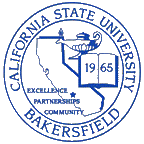Sections 1 and 2 - Spring 2013
Office: SciIII 338, 654-3180
Office Hours: M 4:45-5:45pm, Tu 12:45-2:45pm, and WF 12:45-1:45pm (or by appointment)
Email: melissa@cs.csubak.edu
Course website: http://www.cs.csubak.edu/~melissa/ under Teaching menu
Moodle website: http://moodle.cs.csubak.edu/moodle/course/view.php?id=69
Course meets MWF 3:30-4:40pm and Tu 3:15-5:45pm in Sci III 315
CC-NC2: Communication and networking
CC-NC3: Network security
CC-NC4: The web as an example of client-server computing
4th edition: Computer Networks, Andrew S. Tanenbaum, Prentice Hall, ISBN 0-13-066102-3.
5th edition: Computer Networks, Andrew S. Tanenbaum and David Wetherall, Prentice Hall, ISBN-13 978-0-13-212695-3.
| Chapter 1 | Introduction |
| Chapter 2 | The Physical Layer |
| Chapter 3 | The Data Link Layer |
| Chapter 4 | The Medium Access Sublayer |
| Chapter 5 | The Network Layer |
| Chapter 6 | The Transport Layer |
| Chapter 7 | The Application Layer |
| Chapter 8 | Network Security |
| Week 1 | Chapters 1 and 2 |
| Week 2 | Chapter 2 |
| Week 3 | Chapter 2, Statistics, Chapter 3 |
| Week 4 | Chapter 3, Chapter 4 |
| Week 5 | Chapter 4 |
| Week 6 | Chapter 4 |
| Week 7 | Chapter 5 |
| Week 8 | Chapter 5 |
| Week 9 | Chapter 6 |
| Week 10 | Chapters 7 and 8 |
- 3a.
- An ability to apply knowledge of computing and mathematics appropriate to the discipline.
- Examination and homework questions will require application of mathematical techniques and knowledge of the physical layer of networking.
- 3e.
- An understanding of professional, ethical, legal, security, and social issues and responsibilities.
- Laboratory and homework assignments will require an understanding and assessment of security in a networking context.
- 3i.
- An ability to use current techniques, skills, and tools necessary for computing practice.
- Laboratory assignments will require practical application of modern TCP/IP programming practices. Exam questions will analysis of a networking problem and the derivation of an appropriate solution.
There are also computers available in the CEE/CS Major Study Lounge in Sci III 341 (formerly the CEE/CS Library). This room is only open when faculty members are on campus, e.g. approximately 8am to 5pm on weekdays. If the door is currently locked, see Steve, Lori, myself, or another faculty member to unlock it.
| Labs/Homework | 40% |
| Midterm | 30% |
| Final | 30% |
Homeworks may be discussed in groups, but every student must turn in their own assignments in their own words. Refer to the Academic Integrity Policy above.
Assignments will be posted online on the course website. The due date will be given with the assignment.
Late homework is accepted, but it will be marked down 10% for every day it is late. Saturday and Sunday combined count as only one day late (e.g. if the assignment is due Friday and you turn it in Sunday, it will be marked as one day late). If there is a late policy stating the last day the assignment can be turned in late posted on the assignment, then that policy will apply for that particular assignment. Otherwise, homework assignments that are more than three days late will not be accepted.
Do NOT use Microsoft Office formats, particularly DOCX or XLSX, as they cannot be read by the instructor. Do not use GMail or any other email method for the coding assignments as the campus spam filter may block the email without notifying the either you or the instructor.
Allow at least one week after the assignment due date for the grade to be posted to Moodle. All coding assignments will have the Comment section of Moodle updated to say "assignment received" within a day or two of the instructor receiving the email, even if the assignment has not yet been graded.
It is your responsibility to check Moodle to see if your assignment has been received. If you believe you emailed the assignment on time but the instructor has not received it, contact the instructor.
If you cannot make the midterm due to class conflicts, you can schedule an alternate time by contacting the instructor at least ONE WEEK in advance.
A make-up midterm will only be given if you have to miss the midterm for serious and compelling reasons. You must notify the instructor of the reason for missing the midterm as soon as possible after missing the midterm.
If you cannot make the scheduled final time because it conflicts with another final or you have more than two finals scheduled that day, you MUST contact the instructor ONE WEEK in advance of the final to schedule an alternate time.
If sufficient requests are made for an alternate time, the instructor reserves the option to set up a second final session at an alternate time for the students who cannot make the regular final session time. If the instructor opts to schedule a second final session, it will be announced on Moodle and in class.
